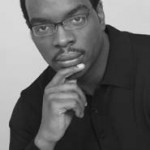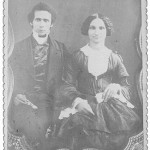White Anti-Intellectualism Flies Under the Radar
In short, when it comes to “acting white,” if the term means paying no attention to policy details, but rather voting for the person who you’d most like to hang out with at a sports bar, then perhaps we need not only black and brown folks to forswear such lunacy, but for those of us who are white to turn on whiteness too.
–Tim Wise
Pundits and politicos of all ethnicities have weighed in on the seemingly abberant tendency among African American youth to label learning, reading, and other academic activities as “acting white.”
This phenomenon is portrayed, among other things, as a betrayal of our ancestors’ struggle to earn — for their children, grandchildren, great-grands, and beyond — the right to learn and be taught. Betrayal or not, however, the disdain and distrust conveyed in the assertion that good students are “acting white” links these Black youth to one of the most deeply entrenched elements of the American character, anti-intellectualism.
African American youth may have developed a more headline-grabbing way to taunt their overachieving peers(by telling them that they are “acting white”), but they are certainly not alone in their tendency to tease and isolate those who seem to have an uncommon interest in learning and books. Think about it: how many high schools can you name, in which the president of the math club is more popular than the captain of the football team? Anti-intellectualism is, at its base, an core American value.
The following essay underscores that anti-intellectualism is an American problem which, having dodged meaningful address in recent years, now threatens our political and economic future in ways that could truly have lasting and irreversible effects.
***
“Reflections on White Anti-Intellectualism
(Or, What’cha Want With all That Book Learnin’?)”
By Tim Wise (from his myspace blog)
September 14, 2008
To hear an awful lot of white folks tell it, the problem with black people is that they just don’t want to work hard enough in school. They act up and refuse to study or get good grades, because they don’t want to be put down for “acting white.” In other words, the African American community is beset by a culture of anti-intellectualism, contrasted, one supposes with our own white culture of studiousness and academic achievement.
When making this argument, and knowing that it might sound a bit disparaging, even racist, we white folks love to refer to the high-profile black folks who agree with us. So we point to Bill Cosby, for instance, who said this same thing a few years ago and hasn’t stopped saying it yet. The fact that a dozen or so studies have found that there actually is no unique peer pressure or ostracism that black kids experience for doing well in school (over and above that which all kids who are viewed as brainy often face) fails to move them. The fact that longitudinal data actually shows that black students are the most likely to believe in the importance of getting a good education, the least likely to cheat and the least likely to skip class appears to matter not.
But what I have always found interesting about the anti-intellectualism charge coming from whites and pointed at persons in the black community, is how readily it emanates from a group of people (white adults) who seem to actually revel in anti-intellectualism, as evidenced by our voting behavior and political sensibilities, made especially clear during the current political campaign. Read the rest of this entry »
Posted in African Americans, anti-intellectualism, Bill Cosby, Black Students, Current Events, Higher Education, Obama, race, Tim Wise, white people | Comments Off on White Anti-Intellectualism Flies Under the Radar








